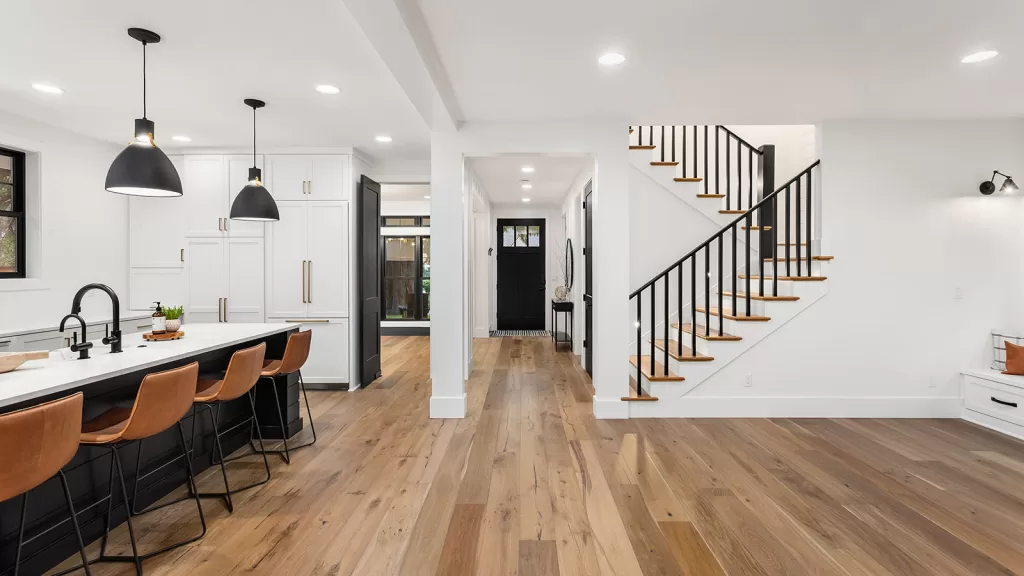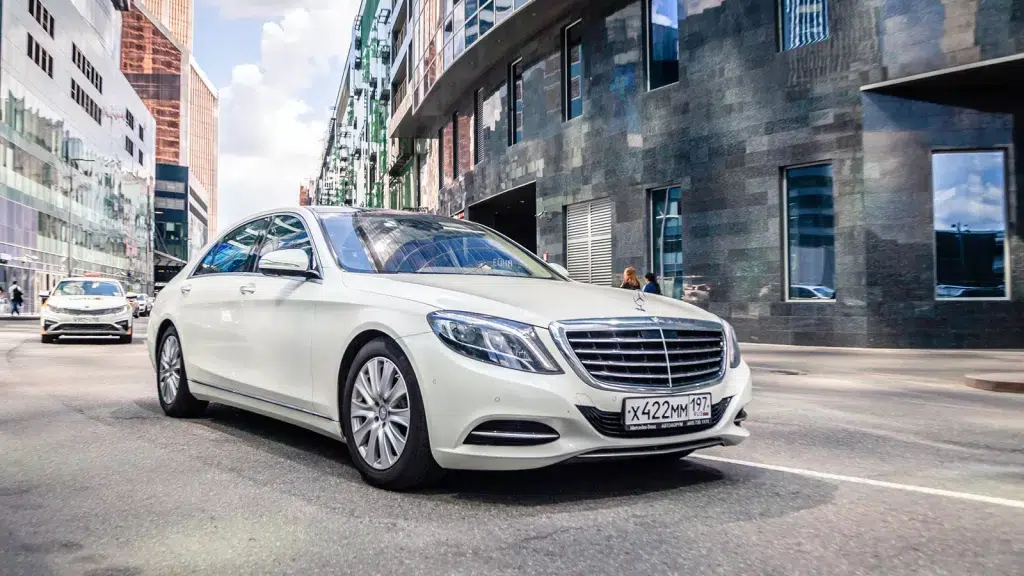Your spending habits control your financial health. The more money you spend on things that you probably don’t need, the less you’ll have in case of an emergency or to save and invest for your future self.
While some expenses are essential for a comfortable lifestyle (after all, our lives can’t feel like a sacrifice), others might drain our finances unnecessarily, especially if we’re not among the wealthiest.
Here are 20 things to reconsider spending money on unless you’re truly affluent.
Luxury Cars

I get it — we all want fancy cars. I was one of those “car guys,” too, but it also drained my pocketbook of hard-earned cash.
Driving a luxury vehicle can significantly strain your budget unless you’re financially secure. Moreover, luxury cars often come with hefty maintenance costs and depreciation rates that can consume your savings over time. And let’s face it, there’s always something to upgrade.
Opting for a reliable, moderately priced vehicle can save you a fortune without compromising functionality or comfort.
Designer Clothing

I understand wanting to dress well, but that doesn’t mean you must spend an arm and a leg to buy the most expensive clothes. High-end fashion brands often charge inflated prices for their labels, focusing more on prestige than quality.
You might be surprised at the options you have with off-brands. Many affordable brands offer stylish and durable clothing options that suit various budgets. Instead of chasing designer trends, prioritize clothing that fits well, suits your style, and is made from quality materials.
Your wallet will thank you, and you’ll still look fashionable without breaking the bank.
Expensive Gadgets

Gadgets are cool, but the latest smartphones, tablets, and other gadgets will keep us spending money we don’t have on electronics that we probably don’t need. This is especially true if you regularly upgrade your gadgets, such as your cell phone.
Manufacturers frequently release new versions with marginal improvements, enticing consumers to replace their perfectly functional devices. Unless your livelihood depends on having cutting-edge technology, sticking with slightly older models or mid-range alternatives can save you hundreds or even thousands of dollars annually.
First-Class Flights

While the appeal of first-class travel is undeniable (I enjoy flying in style occasionally), the hefty price tag often outweighs the benefits, especially for short flights.
Unless you’re swimming in money or have amassed enough frequent flyer miles to upgrade without additional cost, flying economy is a more financially prudent choice. After all, you’ll get to your destination at the exact same time as first-class passengers anyway.
The difference in comfort between economy and first-class may not justify the significant increase in ticket price, particularly for budget-conscious travelers.
High-End Coffee

Daily visits to upscale coffee shops can quickly drain your bank account. And most of us work for employers that provide free coffee!
While indulging in a specialty latte or artisanal brew occasionally is fine, making it a habit can add up to substantial expenses over time. Investing in a high-quality coffee maker and brewing your own coffee at home is a more economical option that doesn’t sacrifice taste.
With some practice, you can recreate your favorite café-style beverages at a fraction of the cost. Consider it a challenge to replicate your favorite coffee drink.
Fine Dining

Dining out at fancy restaurants can be a great experience, but it’s not something most people can afford to do regularly unless you are wealthy.
The cost of appetizers, entrees, drinks, and gratuity at upscale eateries can easily surpass what you’d spend on groceries for an entire week. Instead of dining out frequently, reserve upscale restaurants for special occasions like anniversaries, the occasional date night, or more affordable dining options, such as casual eateries or cooking meals at home.
You’ll save money and develop your culinary skills in the process.
Gourmet Ingredients

While cooking at home is generally more cost-effective than dining out, splurging on gourmet ingredients can unnecessarily inflate your grocery bill.
While it’s nice to occasionally treat yourself to high-quality ingredients, many everyday dishes can be made just as delicious with more affordable alternatives. Prioritize fresh, seasonal produce and explore budget-friendly recipes that don’t require pricey specialty items.
Trendy Subscriptions

Subscription services for streaming, meal kits, beauty boxes, and more have become ubiquitous in recent years. While these services offer convenience and novelty, subscribing to multiple platforms can quickly add up to as much as the cable TV package you canceled.
Assess your subscriptions regularly and eliminate those you don’t use frequently or can live without. Consolidating subscriptions or opting for free alternatives can help you save money without sacrificing entertainment or convenience.
Excessive Entertainment Expenses

While entertainment is essential for relaxation and enjoyment, excessive spending on concerts, events, and outings can strain your finances. Entertainment is discretionary!
Instead of regularly splurging on pricey tickets, explore free or low-cost entertainment options in your community, such as local festivals, parks, or cultural events. Also, host gatherings with friends or family at home, where you can enjoy each other’s company without spending a fortune on entertainment venues.
Overpriced Gym Memberships

Gym memberships at upscale fitness centers often come with steep monthly fees and lengthy contracts. Unless you utilize all the amenities and services such facilities offer, you’re likely overspending on your fitness regimen.
Opt for budget-friendly gyms or explore alternative ways to stay active, such as outdoor workouts, home exercise routines, or community fitness classes. Heck, consider building your own home gym if you have the space available.
You can achieve your fitness goals without breaking the bank with some creativity.
Unnecessary Home Upgrades

While it’s tempting to splurge on home upgrades and renovations to enhance comfort and aesthetics, not all expenses are worth it. And you probably won’t get that money back when you sell the house, either.
Before embarking on costly projects, consider whether the upgrades are essential or cosmetic. Focus on practical improvements that add value to your home and align with your long-term goals. Don’t buy into trends or over-personalize your space, as these choices can be costly to undo in the future.
Brand-Name Medications

While brand-name medications are often heavily marketed and perceived as superior, generic alternatives typically contain the same active ingredients at a fraction of the cost.
For instance, Advil is the brand name, but Ibuprofen is generic and also tends to work.
Unless your healthcare provider specifically recommends a brand-name medication due to unique circumstances, opting for generics can lead to significant savings on prescription drugs. Always consult your healthcare provider or pharmacist to ensure that generic medications suit your needs.
Costly Financial Services

High fees and commissions associated with certain financial services, such as investment management, banking, or insurance, can deplete savings over time.
While hiring a financial advisor can be a wise decision, research and compare fees from multiple providers to ensure you’re getting the best value. Also, consider exploring low-cost or fee-free alternatives like online banks, robo-advisors, or DIY investing platforms to minimize expenses and maximize returns.
Impulse Purchases

Impulse purchases are often driven by emotions rather than practicality, leading to unnecessary spending on items we don’t need.
Before making a purchase, especially a big one, take a moment to consider whether it aligns with your financial goals and priorities. Implementing a waiting period before punching the ‘Buy Now’ button, such as a 24-hour rule, can help curb impulse buying tendencies and give you time to evaluate whether the purchase is truly worth it.
Costly Hobbies

While hobbies are a great way to unwind and pursue passions, certain hobbies can become prohibitively expensive if not managed carefully.
Whether you collect rare items (or cars!), pursue extreme sports, or engage in high-end crafts, assess the financial impact of your hobbies and set realistic budgets to avoid overspending. Look for ways to enjoy your hobbies without breaking the bank, such as buying secondhand equipment, participating in group activities, or finding free resources online.
Extravagant Gifts

While it’s natural to want to spoil loved ones on special occasions, extravagant gifts aren’t always necessary to express your love. Overspending on gifts can strain your budget and create unrealistic expectations. Trust me, I’ve done this plenty.
Instead of focusing on the monetary value of a gift, consider thoughtful gestures or experiences that hold sentimental value. Personalized gifts, handmade items, or shared experiences often resonate more deeply with recipients than expensive material possessions.
Branded Baby Products

Parenthood comes with many expenses (on average, raising a child until 18 costs an average of $250,000 per child), and baby products marketed by well-known brands can significantly contribute to the cost.
While safety and quality are important for baby items, many generic or store-brand alternatives offer comparable performance at a lower price point, conduct research, read reviews, and prioritize functionality and safety when selecting baby products to ensure you’re getting the best value for your money.
Excessive Home Décor

While decorating your home can enhance its ambiance and reflect your personal style, excessive spending on home décor items is unnecessary for most people.
Instead of constantly updating your décor with trendy pieces, invest in timeless staples that can withstand changing design trends. Get creative with DIY projects, thrifting finds, and repurposed items to personalize your space without overspending on expensive furnishings and decorations.
As always, set a budget so you know how much you can spend on your home projects. It’s too easy to overspend on home renovations and improvements.
Annual Subscriptions

While annual subscriptions may offer cost savings compared to monthly plans, committing to long-term contracts for services you don’t consistently use can be wasteful. Things you use today may not be things you use six months from now.
Evaluate whether the savings justify the upfront investment and whether your usage patterns align with the subscription’s terms. Opting for monthly or pay-as-you-go plans for services you use infrequently can offer greater flexibility and control over your expenses.
Designer Pets

While purebred or designer pets may appeal to some, the exorbitant prices associated with these animals often outweigh any perceived benefits.
Instead of purchasing from breeders or specialty stores, consider adopting a pet from a shelter or rescue organization. Not only will you save money on adoption fees, but you’ll also provide a loving home to an animal in need.
Remember, the love and companionship of a pet are priceless, regardless of breed or pedigree.



